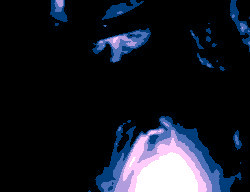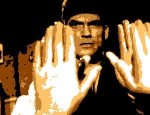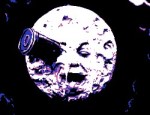Film Review
In the early 1960s, the popularity of Alfred Hitchcock's
Psycho
(1960) ignited a craze for psycho-thrillers which the British film
company Hammer exploited for all it was worth as a lucrative sideline
to its run of Gothic horror films. Following
Taste
of Fear (1961), the studio turned out half a dozen similar
'shock' thrillers, each employing the gimmicky twist ending of H.G.
Clouzot's
Les Diaboliques (1955) in one
form or another.
Maniac
is the film in this series where this is most apparent - indeed, so
closely does it imitate the plot of
Les
Diaboliques that it could almost be considered a remake or, less
flatteringly, a flagrant rip-off. Unlike the other
psycho-thrillers he would script for Hammer - the best being
Paranoiac
(1963) and
Nightmare (1964) - Jimmy
Sangster's reworking of Clouzot's film for
Maniac is a little too
mechanical. The end-result is a convoluted narrative that
struggles to make any kind of sense, although the film still functions
effectively as a classic sting-in-the-tail thriller.
The plot shortcomings aside, Michael Carreras (son of James Carreras,
the founder of Hammer Studios) manages to acquit himself in the
director's chair, making effective use of the film's location in the
Camargue region of southern France to give it a very different feel to
Hammer's usual horror output. Although he was a producer for most
of his career, in which capacity he saw Hammer through its most
commercially successful years, Carreras did occasionally lend his
talents as a director, first on the war film
The Steel Bayonet (1957), later on
the classic Gothic horror
The Curse of the Mummy's Tomb
(1964). No one would ever place Carreras in the same league
as Hammer's star directors Terence Fisher or Freddie Francis, who had a
natural affinity for the horror genre, but he did have a certain visual
flair, and this is most apparent in the spectacular nightmarish
conclusion to
Maniac. A
magician when it came to using light and shade to create atmosphere,
cinematographer Wilkie Cooper contributes much to the aura of menace
that almost saturates the film, helped along by an eerie score from
Stanley Black.
The film's attractive lead performers include Kerwin Mathews, famous
for playing Sinbad in the
The 7th Voyage of Sinbad
(1958), and sultry Rumanian beauty Nadia Gray, who graced several
stylish French and Italian films of the 1960s, including Fellini's
La
Dolce Vita (1960). With Mathews and Gray monopolising
our attention for most of the film's runtime it is easy to overlook
French ingénue Liliane Brousse, who only comes into her own in
the film's concluding scenes, when she is suddenly projected into the
role of the 'girl in peril', without which no psycho-thriller would be
complete. George Pastell brings a touch of gravitas (as well as
some dark humour) to the proceedings as a slightly sinister French
police inspector - Carreras would put the actor's creepy,
mortuary-scented presence to much better use on
The Curse of the Mummy's Tomb.
Maniac's contrived plot, too
muddled and unconvincing to take seriously, prevents the film from
living up to the high standard of Hammer's other psycho-thrillers,
although compelling performances from the leads and some striking
visuals make this obvious
Les
Diaboliques imitation just about worth the effort. And the
idea of a deranged killer burning people's faces off with an
oxy-acetylene torch is one of the more gruesome ones the studio came up
with. By the mid-60s, horror was starting to get a whole lot
nastier...
© James Travers 2015
The above content is owned by frenchfilms.org and must not be copied.
Film Synopsis
Jeff Farrell, an American artist, is holidaying in the south of France
when he strikes up a friendship with provincial bar owner Eve Beynat
and her stepdaughter Annette. Eve's husband Georges is locked
away in an asylum, having used a blowtorch to kill the man who raped
his daughter four years previously. In love with Eve, Jeff wants
to start a new life with her, but she insists that in the eyes of the
law she is still married to Georges. Eve agrees to elope with
Jeff if he assists her in helping Georges to escape from the
asylum. After driving Georges to the coast, where he intends
catching a boat to England, Eve and Jeff discover the dead body of an
asylum warder in the boot of their car. Far from being cured of
his insanity, it would seem that Georges is as dangerous as ever, and
the one thing on his mind is revenge...
© James Travers
The above content is owned by frenchfilms.org and must not be copied.



